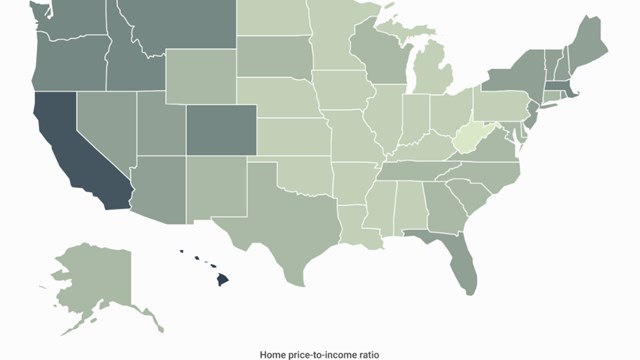What do you look for when you're researching a possible new neighborhood? Movie
buffs will tell you that it's essential to be near a state-of-the-art theater. Fitness conscious New Yorkers will want to investigate whether there's a good health club within walking distance. Parents, however, have a different agenda. In addition to their own criteria, they also have the needs of their children to consider.
When selecting a new neighborhood, parents are interested in quality of life issues that will affect their kids. Besides recreational facilities like parks or playgrounds, they'll want to know whether there's a good school within walking distance. According to real estate experts, buyers who can offer this hot commodity appear to have a definite advantage in the co-op and condo marketplace.
Proximity Equals Convenience
Proximity to good schools does affect your real estate investment, says Cathy Slattery, a broker with The Corcoran Group in Manhattan. It's definitely a selling point. Slattery, who lives and often works in Carnegie Hill, always mentions the large selection of desirable schools in her neighborhood whenever she talks to buyers about the area. It's one of the very nice features that I play up.
Living within walking distance of a school is especially convenient for parents whose children are elementary school aged or younger. They, or the caretaker, will need to go back and forth to the school. If they live nearby, they don't have to do a major trek across the city, Slattery explains. Proximity is also helpful as children get older, toward the end of elementary school, and they're able to take themselves to school. It's very nice if they can walk.
According to Corinne Pulitzer, a real estate broker who specializes in Upper East Side properties for Charles H. Greenthal Residential Sales in Manhattan, When showing an apartment to people who have children, proximity to a school is a concern. Pulitzer is showing a family apartment right now and part of her advertising is that it's within the PS 6 school district on Madison Avenue at 81st Street.
A lot of people I see are interested in public elementary schools like PS 6, she explains. The gifted program is almost on a par with the curriculum in a private school. Even their non-gifted program is very strong academically. PS 158, on Park Avenue, is another very fine public school that many of Pulitzer's customers have been eager to send their kids to. From either of these public elementary schools, they can usually get into the private college preparatory schools.
However, Neil Binder, a principal of Bellmarc Property Management, a brokerage and property management firm in Manhattan, points out that buyers can't assume that having a school on their block will necessarily increase the salability of their apartment. They need to take into account the personality of the school. From what I've been told, Binder explains, the new Metropolitan Montessori School on 85th Street between West End Avenue and Riverside Drive has resulted in increased interest in that area since last year.
But this has not been the case in the area immediately surrounding another school, on West 70th Street. It has been there a long time and has had no added value to the properties in the neighborhood, Binder says, because there's a large area in the front of the scho ffb ol where people can congregate. At night it attracts a bad element to that block.
Selecting a School
Buyers who are also parents have their homework cut out for them. They should look for a school that matches the personality of the family. Binder has observed a variety of flavors available in both private and public city schools. These include: nurturing, disciplinarian, unconventional and traditional. If you pick the right match for your child, you'll both feel good, he says.
Brokers are usually only knowledgeable about the schools in the neighborhoods they deal with, Binder adds. An East Side broker probably won't have in-depth knowledge about the schools in Midtown or in the Greenwich Village area. The best way to get a feel for a school is by visiting the classrooms, observing the children and meeting the teachers and administrators. For the big picture, visit your favorite bookstore where you'll find an array of books that review New York City schools.
Word of mouth is the best way to do research, adds Slattery, who thinks New York City has really wonderful schools. Parents can learn a lot by talking to parents of children who are slightly older than their own children, because they've actually experienced what's going on at the school. They can explain whether their child has been happy there and why.
New Source of Information
A new source of information about the schools in a variety of neighborhoods is SchoolMatch of Westerville, Ohio, which provides a database of information about all accredited public and private elementary and secondary schools in the United States. Parents in New York City, and other parts of the country, can call 1-800-SCHOOL-1 to receive up-to-date information, says William Bainbridge, president of SchoolMatch. This service is beneficial because callers can compare national and regional ratings in a number of categories like class size and national percentile ranks. We can also tell them about the course offerings at a particular school.
Moore Data Management Services, a Minneapolis-based technology provider to the real estate industry which provides multiple listing services and on-line access, has begun licensing the SchoolMatch database to real estate brokers in the United States and Canada. According to John Mosey, Moore's vice president of sales, the database is installed on the broker's computer and updates are available on a subscription basis.
Since comparative information is available, it's possible to find a school that mirrors a client's favorite. One of the most important considerations in the moving process, Mosey explains, is the match between the community's schools and the needs of the buyer's children. Brokers who are able to provide this information will forge stronger relationships with both buyers and sellers.
Mosey adds that when obtaining SchoolMatch information from a broker, the buyer can look at the data on the screen or request a print-out. Presumably the cost is part of the service provided by the broker or agent, Mosey says. If the buyer calls the 800 number directly, the report can be sent overnight and billed to the caller's credit card. According to Mosey, when calling SchoolMatch directly, the cost can run from $95 to $150.
The School Angle
Whether or not they have children, more and more people are realizing that proximity to a quality school will impact positively on their property value, says Mosey. You can join the ranks of savvy homeowners by keeping this in mind when looking for a new co-op or condo apartment. And, if you're a seller who's located near a school that offers something special, make sure you tell your broker, so he or she can play up this important angle to potential buyers.
Ms. Mosher is Associate Editor of The Cooperator.






Leave a Comment